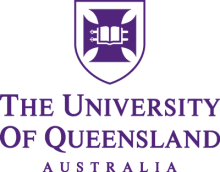关于 Toyota Technological Institute
The Toyota Technical Institute (TTI) was established in 1981 by the Toyota Motor Corporation. The company, under the leadership of Eiji Toyota took the decision to open a new university in 1977 following the core principals of the corporation: “Respect the spirit of research and creativity, and always strive to stay ahead of the times.”
TTI opened in 1981 with a large endowment from Toyota Motor Corporation, focusing on teaching in the fields of science and technology. Initially the university only accepted candidates who had experience working in industry but in 1993 TTI opened its doors to high-school graduates who now make up the bulk of its admissions.
A PhD programme was established in 1995 to ensure TTI stayed ahead of the times with cutting edge research and in 2003 the university opened a branch in Chicago focusing on computer science.
Although a relatively young and small institution, TTI has performed well nationally and internationally in rankings for scientific and technical education and employment prospects for graduates are consistently strong.
The Japanese branch of the university, located in the city of Nagoya (Toyota’s home city) is home to the undergraduate and graduate schools of engineering, offering courses in electronics and information science, materials science and mechanical systems. The Chicago campus focuses on computer science with postgraduate courses in machine learning, theoretical computer science and scientific computing.
The Toyota Corporation has had a huge impact on the technological development of Japan and the mission of the TTI is to continue that legacy by producing the best and brightest graduates who will continue to innovate in the high tech, industrial and scientific fields.
Toyota Technological Institute 的排名数据分析
对比大学重要统计数据
关键统计数据
- 10.0每位教职员对学生数量(1)
- 1%国际学生比例(1)
- 8 : 92女生对男生的学生比例(1)
- 26%Proportion of ISR Publications(1)
- 508Number of FTE Students(1)
- ¥8,529Finance per Student (¥000s)(2)
Toyota Technological Institute 的授予学科
Engineering & technology
- Chemical Engineering
- General Engineering
- Mechanical & Aerospace Engineering
- Electrical & Electronic Engineering
Computer science
- Computer Science
Physical sciences
- Chemistry
- Physics & Astronomy






